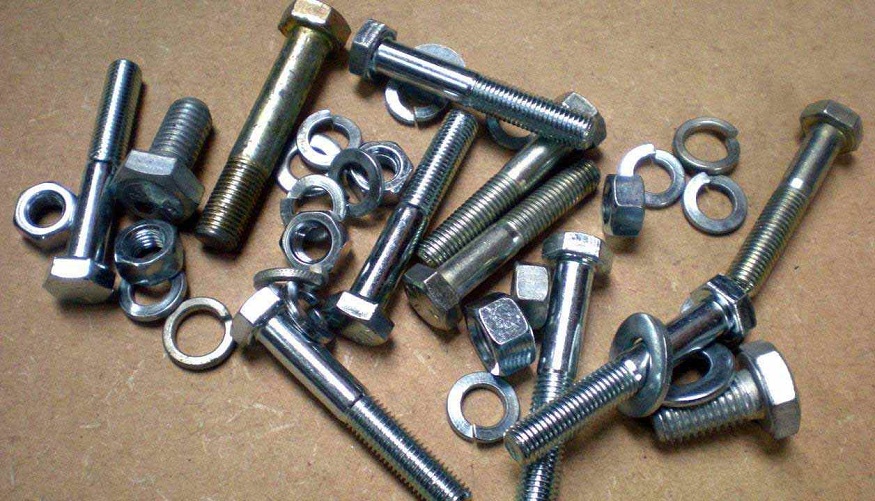Within the variety of skilled trades and industrialist operations that are done in Oman, the source of fasteners that are strong and leave no room for error cannot be underestimated. Fastening components are one of the foremost factors that dictate the quality, safety, and long-term performance of the structure, therefore selecting the appropriate one from among the many is undoubtedly a very key prerequisite. The guide is not only a discussion of the main factors that need to be considered when selecting fasteners suppliers in oman but also helpful for finding reliable manufacturers of fasteners in Oman.
1. Understanding Your Requirements
The first way to find the best fastener supplier is to create a needful document of requirements. What kind of fasteners will be used for your projects does matter: traditional components like bolts, screws, nuts, and washers, as well as other fasteners. Specify the size, material, grade, and upper/lower limit for the finished item, through the given technical, environmental, and industry standards. On the other hand, throughout the track of the search, the following phase which is setting the direction of the search is in order the supplier that suits you most on site.
2. Researching Potential Suppliers
Now that your requirements have been established, start a comprehensive search to list available fastener suppliers in Oman. Use online platforms, trade shows, industry directories, and networking opportunities to create a collection of respectable suppliers. Evaluate those aspects, including their industry experience, product line, certifications, customer reviews, and overall market performance. A variety of possible suppliers enables one to compare and contrast a supplier’s performance, eventually leading to well-informed decision-making.
3. Evaluating Quality Standards
Quality assurance of fastener suppliers is the paramount aspect during the selection process. Look for suppliers who adhere to internationally recognized quality standards, such as ISO 9001:2015, if it is ISO 14001, or a particular industry standard like ASTM, DIN, or ANSI standards. Check about the manufacturer’s quality control process, material provenance, testing capacities, and documentation, among other things. Ask for samples or test reports so you can make your judgment about the quality and performance of the company’s fasteners in the conditions they may encounter.
4. Assessing Product Range and Availability
The wide range of products is one of the principles and characteristics of a reputable fastener supplier. Look into whether the supplier maintains a broad pallet of different-size fasteners in the supply selection that are coming in different materials, finishes, and variants. Look into the extent to which you can use both standard and special fasteners for projects that have special requirements. Verify with them their inventory levels, delivery times, and whether they can process bulk orders or handle urgent requests without affecting the quality level or delivery deadlines.
5. Checking the supplier’s reputation and experience
The status and achievements of a fastener supplier can help determine whether they can be trusted and valued in the market. Challenge yourself by engaging in dialogue with market veterans, consulting the registers with a history, and researching customer reviews or case studies. Factors to take into account are the length of time the supplier has stayed in the industry, projects that he has accomplished, reputation, stability, and moral probity. A reliable supplier with a good reputation creates confidence and enhances credibility in business transactions.
6. Assessment of Delivery and Logistics Performances
One does not need to underestimate the importance of effective logistics and instant delivery in the process of an orderly supply chain. It is very important to look into delivery capabilities, shipping choices, transit times, and handling procedures in the case of an overseas shipment. Ask them for more information on their inventory management systems, warehousing facilities, and logistics partners to be sure the fasteners needed will arrive at your project sites promptly and in good order. A material supplier gives logistical infrastructure high priority, enabling short lead times and fleet logistic obstruction.
7. Assessing customer support and communication
Good communication and the support that responds to customer queries are two of the aspects that matter for a good relationship with a fastener provider. Based on the supplier’s communication channels and responsiveness to inquiries, assess their technical support capabilities and the capability to address any issues or concerns timely. Take their approach to handling customer feedback, options, and warranty claims on your radar. A supplier who takes care of customers and runs open channels of communication leads to favorable conditions for collaboration and solutions to problems.
8. Read through the terms and conditions.
Before you sign any agreements or contracts, make sure to read the supplier’s terms and conditions to check if they’re understandable and consistent with your expectations. Give value to proposed payment terms, price variations, shipping times, product guarantees, returns and exchange policies, dispute resolution mechanisms, and disclosure clauses. Seek consultation in case of any legal issue so there is a clear understanding of what is right and what is wrong, no losses, and mitigation of misunderstanding.
9. Conducting Site Visits and Audits
For extra confidence, you can also make a short trip to your supplier’s company and audit their production processes, quality control measures, and environmental standards. Watch the production machinery, evaluate the condition of the equipment, pay attention to material handling, and focus on safety instructions as the tour proceeds. Involve yourself in the discussion with the important crew members, such as production managers, quality control departments., and sales representatives, to learn about their daily operations and commitment to doing excellently well.
Conclusion:
In conclusion, the successful selection of fastener suppliers in Oman entails systematic planning, researching, and assessing several factors. Analysing your specific needs, investigating possible suppliers, considering quality measures, taking pricing and value into account, checking reputation and experience, evaluating delivery and logistics aspects, emphasizing customer support, and reviewing terms and conditions will provide you with intelligent judgments that are appropriate for your projects and in your company





Leave a Reply
You must be logged in to post a comment.